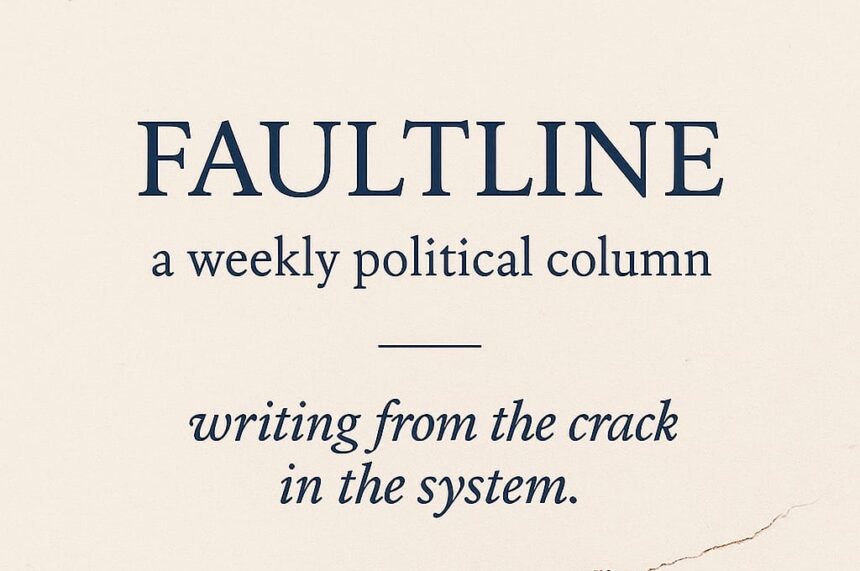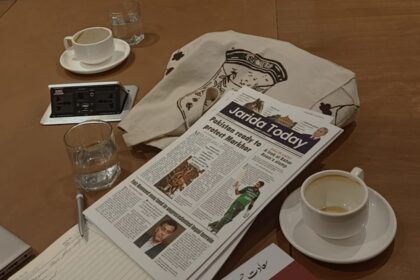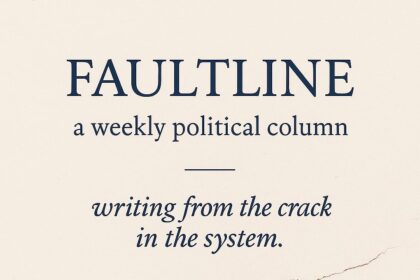Fluorescent lights are all I’ve known for the past thirty-six hours. The deep smell of antiseptic, cultural rot, and something in the middle of grief and despair—these are what I captured when I tried to employ the “Five Things I Can Smell” technique my therapist taught me. Here is how it goes.
When feeling an impending panic, your first—and most obvious—job is to not panic. Take five deep breaths, inhaling the frustrations of everyone around you: the staff that refuses to let you rest your head because if you are as exhausted as you claim to be, why not just go home? The family from Rahim Yar Khan that has to travel eight hours by bus every night in order to get their son treated, because, confirming what the Great Lord Orwell told us, all animals are equal, but some are more equal than others. One wouldn’t dare the impertinence to assume otherwise.
Step two: always believe that things will be fine because the state has got your back. Quite literally. From ensuring health resources are divided in a sophisticated hierarchy that’s disproportionate enough to raise eyebrows but still marketed as a fault of your socioeconomic upbringing, to creating an invisible barrier in the way we access basic human rights, it perpetuates the same subconscious biases that govern our moral choices once power dynamics change. It is not your fault some people were just born poor and refused to do anything about it. In fact, your benevolence for the less fortunate carries more substance than their entire existence. And so, to be honoured with the opportunity to play oppressor after being subdued for so long carries a joy unreachable via any orificial pleasure.
I sometimes wonder what’s more disgusting: my inability to stop thinking of how a hollow set of conjoined words will save me from my present or my insistence on still employing them. Despite, despite, despite. The longer you sit in the waiting room, the clearer it becomes: this is not just personal pain; it is structural neglect. The ventilator is a lifeline. But so is the chai the boy outside sells for 50 rupees, even though he hasn’t eaten all day. He works like he’s saving someone. And maybe he is. No one’s writing about him either.
Even here, sitting in this third space, surrounded by loss, we cannot escape the inequalities that define our lives outside of this building. Who gets to heal? Who is allowed a private room with a side of dignity? Illness in Pakistan is not just biological—it is classed, gendered, and ruthlessly political. It is a waiting room that never ends.
And yet, despite the systemic rupture, there is a soft miracle that keeps appearing. It’s the friends who reassure me from twenty thousand miles away. The family that keeps showing up, reducing metaphors to dust in front of their warmth. And it hits me: we may not have a welfare state, but we do have each other.
This is community. And it is not soft. It is radical.
When the state fails to provide the most basic procedures of healing, the community acts not just as a sentiment, but as an infrastructure. A prayer room for stolen wishes. It becomes the first safety net, the first responder, and inevitably, the first revolution.
In Pakistan, we talk a lot about the revolution in terms of its spectacle: loud protests, denigrating signs, and spilled blood. But perhaps the holiest blood isn’t the one that is drawn, but the one that sustains, that lets life breathe through others, one commitment at a time. Cynics will say this is sentimentality, but sentiment, when shared, is politics. It is the refusal to let each other rot in silence. Not when the opportunity to personify Mary Oliver’s Wild Geese remains.
Pakistan does not kill you outright. It waits. It forgets. It underfunds. And so as I sit here waiting, I’m reminded of what the state will never admit: the most powerful thing you can do in a system built to isolate you is to choose not to be alone.
Grief might be a shared language in this country. But so is love. Neither can be privatised.
We are all in a waiting room of some kind—waiting for justice, for a roof over our heads, for a chance at life. And while we may not know how long we’ll remain here, one thing is clear: we are not alone. And that, too, is a kind of revolution.











